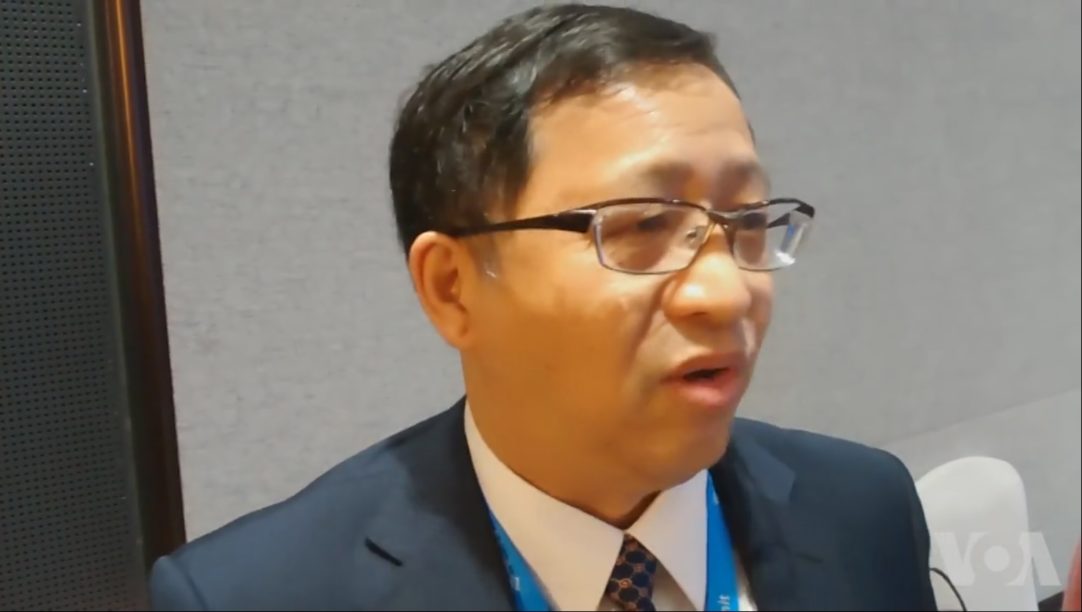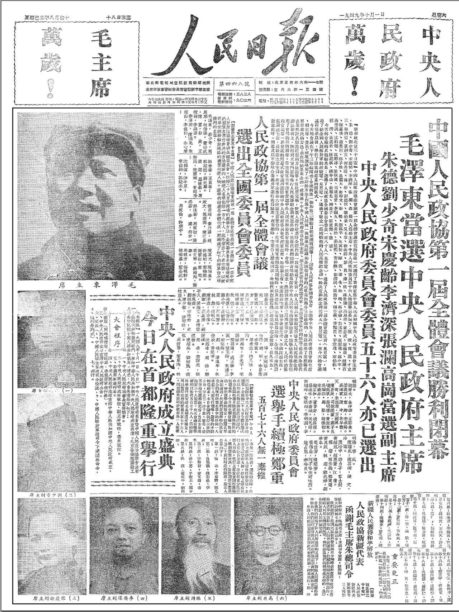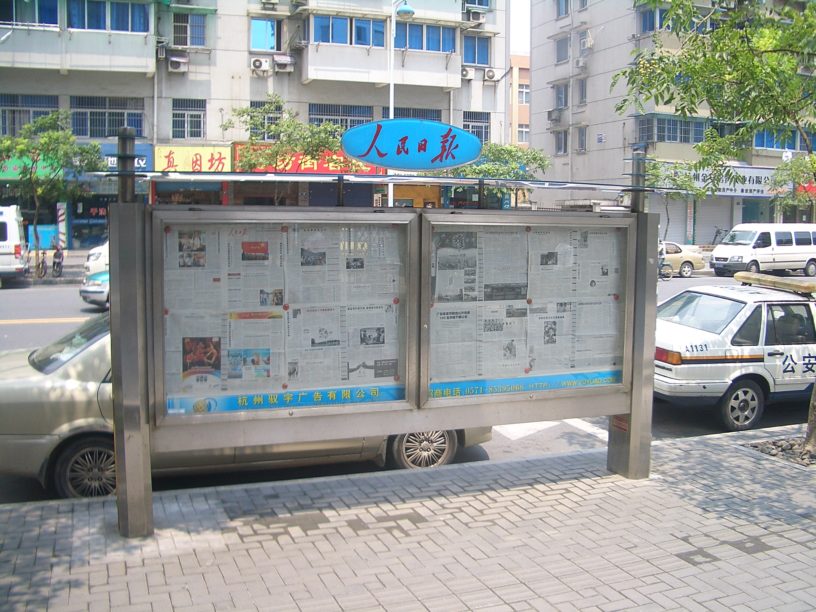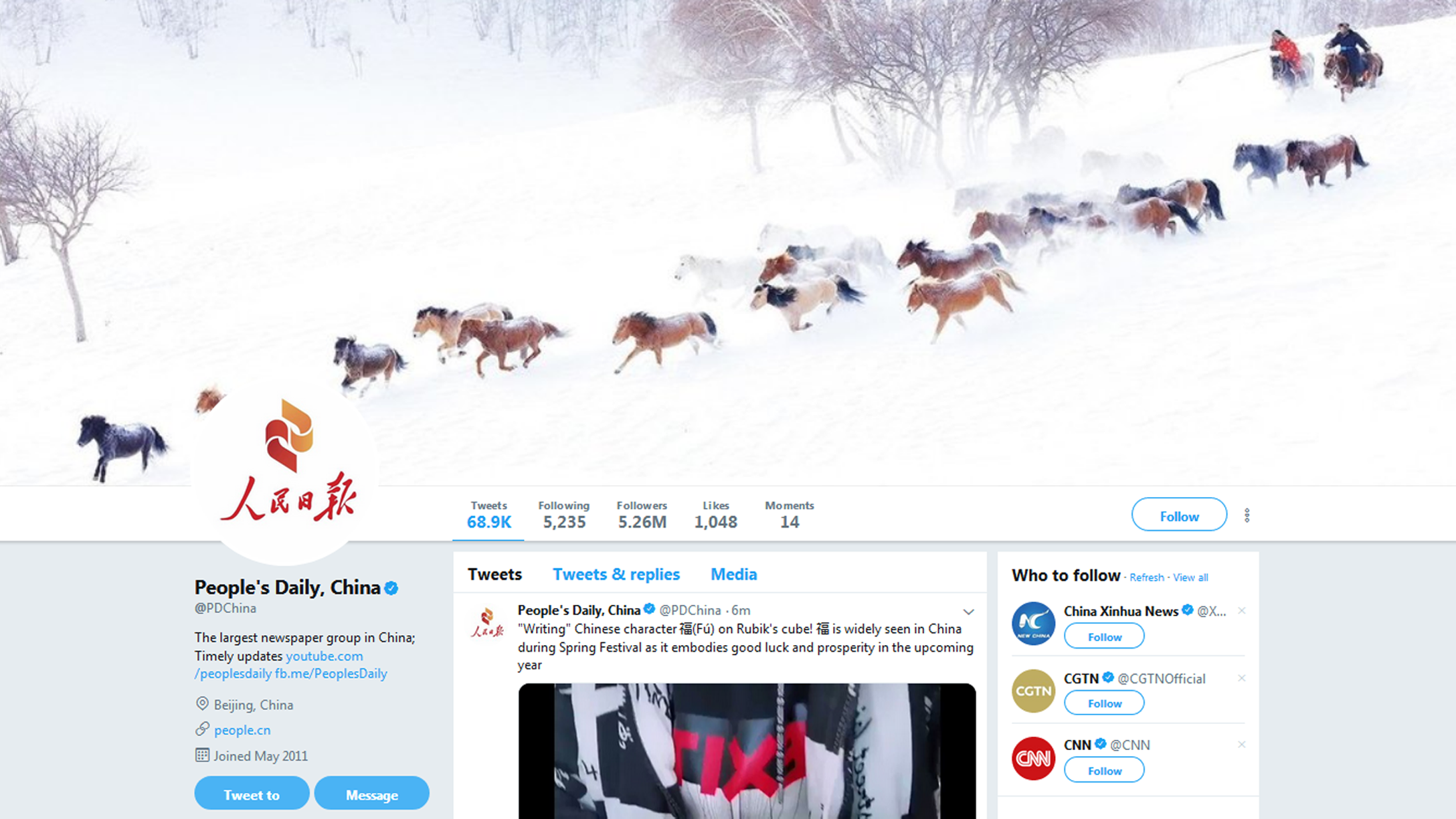I’ve wondered for years now: who exactly runs @PDChina, the People’s Daily’s English-language Twitter account? It has 5.26 million followers. Twitter is banned in China, blocked by what is often referred to as the “Great Firewall of China” (防火长城), and the People’s Daily is China’s leading state-run propaganda organ. Running the People’s Daily’s Twitter account is, therefore, a deeply weird job description.
In 2016, Fan Binxing, the man generally seen as the primary architect of the Great Firewall, landed himself in hot water after accidentally revealing that he used VPN as a way to get around the Firewall to access restricted sites. During a presentation, Fan found himself blocked from viewing a South Korean website he’d hoped to show, leading him to turn on his VPN in front of an audience. He thereby revealed the open secret that he himself, like other Chinese government officials, uses VPN to get around the Firewall.

Fan Binxing (Photo: VOA)
Whoever runs the @PDChina Twitter account is in good company when it comes to the ironies and contradictions inherent to running a highly bureaucratic authoritarian state.
Among China’s various state-run propaganda organs, the People’s Daily is perhaps the most important; commonly seen as the voice of official government policy, it’s often used by the government to make policy declarations in the guise of pseudonymous op-eds.

People’s Daily front cover, October 1, 1949, the founding of the People’s Republic of China
To list a few examples; “Ren Zhongping” (任仲平) is used for editorials written by the People’s Daily editorial team; “Zhongsheng” (种声), a homonym for “中声” or “Voice of China,” is used for foreign policy declarations directed at the outside world; and “Zhong Zuwen” (仲组文) is a pseudonym used for articles written by the Central Committee Organization Department. The appearance of a new pseudonym sometimes stimulates speculation among China experts, and the placement of news reports in the People’s Daily is thought to indicate the relative importance of issues to the Chinese Communist Party (CCP).
There are other state-run news outlets who play other roles. For example, the Global Times serves as something like the id to the People’s Daily’s superego: where the People’s Daily occupies a relatively dignified position as the “mouthpiece” of the party, the state-run tabloid Global Times, which is technically subordinate to the People’s Daily, is openly hawkish, belligerent, and insulting, a much more in-your-face publication. A third outlet, Xinhua News, serves as China’s global news network. Though still serving as a platform for disseminating propaganda, it is more a media network than a direct platform for stating party views.
The extent to which these news outlets directly reflect the CCP’s viewpoints is a topic of frequent debate among China experts. Western media does tend to treat these state-run media outlets as direct reflections of policy; certainly they’re an easy source for quotes.
All this adds to the mystery of @PDChina. As the publication which is at least ostensibly the Chinese government’s flagship media outlet, the People’s Daily‘s Chinese-language writing is stately, well-crafted, even written with a mind to literary grace. People’s Daily articles are sometimes used as samples for teaching “good” Chinese writing in writing classes.
Why, then, is the People’s Daily’s Twitter account posting Tweets like: “Life is short! See a man’s life just in 15 seconds #YOLO”?
Life is short! See a man’s life just in 15 seconds #YOLO pic.twitter.com/MIVQ7dM028
— People's Daily, China (@PDChina) January 25, 2019
For a long time, I have suspected that the People’s Daily’s Twitter account is the @horse_ebooks of China Twitter. For example, what is the following Tweet supposed to indicate? Is this supposed to be a metaphor for China’s understanding of geopolitics?
How to win a chair game… pic.twitter.com/NlnHTEQvEQ
— People's Daily, China (@PDChina) January 2, 2019
Is this tweet supposed to be an exhortation to the Chinese people to unite in the face of the paper tiger of Euro-American imperialism? (Believe it or not, if you look through the responses to the Tweet, you’ll find some that interpreted it that way.)
Unity brings victory. pic.twitter.com/tsdjKzzDZi
— People's Daily, China (@PDChina) January 25, 2019
Recent years have seen marked improvements in the People’s Daily’s grammar, punctuation, and use of hashtags, even if it all still comes off as somewhat heavy-handed. However, the People’s Daily still leaves much room for improvement in its social media game, particularly whenever it posts a short viral gif. These days, they are usually taken from Chinese short video app Douyin, better known in the English-speaking world as TikTok.
Between 2014 and 2016 or so, the People’s Daily was incredibly fond of badly-organized listicles, such as “China’s Top 10 Unique Bridges, Highways, and Roads” (Not to be confused with a separate listicle, “10 most beautiful roads in China,” or “Top 10 Most Awesome Chinese Characters” which helpfully informs that “Most of these Chinese characters resemble the shape of a pyramid and all are very interesting in terms of their form and pronunciation.”) A number of these listicles are quite sexist, such as “Top beauties in Chinese provinces,” “Top 10 charming female soldiers of the PLA”, “Top 10 most beautiful Chinese athletes in Rio”—this last, during the 2016 Rio Olympics—and ask hard-hitting questions such as “Who is the most beautiful university girl in China?” Around this time the Feminist Five first became internationally well-known, which may explain why the People’s Daily cut such content afterward.
It’s hard for me to know who exactly runs the People’s Daily’s Twitter account. But it’s not hard to guess. Apart from Chinese nationals with high English ability, it is not unusual for expats living in China to be hired by state-run media as editors or writers. There are interviews with some who have done this, and I’ve even met a few people who used to work for the People’s Daily. People from these two categories are likely supplying the tweets. So language problems probably don’t account for the People’s Daily’s odd social media presence.
The fundamental issue confronting the People’s Daily is the obvious disconnect: How to represent the Chinese government in a good light on a social media network banned by the Chinese government?
That said, it is often the case that governments, authoritarian or otherwise, maintain strange social media presences. Particularly those with large, powerful militaries. For example, the US Strategic Command—which is in charge of America’s nuclear arsenal—got in trouble over the New Year’s after posting a tweet joking that it planned “to drop something much, much bigger” in the next year. Apparently, somebody didn’t get the memo about joking about nuclear war. This wasn’t the only questionable Tweet coming from the US Strategic Command, either.
[The video above was originally posted with the comment, “#TimesSquare tradition rings in the #NewYear by dropping the big ball…if ever needed, we are #ready to drop something much, much bigger” by the US Strategic Command’s Twitter account.]

Newspaper display board in Hangzhou with the People’s Daily. Photo credit: Vmenkov/WikiCommons/CC
Despite the relative importance of the People’s Daily, domestically and as a voice for the party, the CCP might not give its English section too much priority; other outlets, such as Xinhua News, or CGTN (formerly known as CCTV) may be more important. I am also told by former employees that part of the stilted character of the People’s Daily’s English is the result of an insistence on highly literal translations from higher-ups.
It’s also possible that, like many old-school media outlets desperately trying to keep up with the times, even the People’s Daily has sought to appear cool and trendy. For example the listicle era at the People’s Daily coincided with the rise of that form at the early Buzzfeed. So, “How do you do, fellow kids?”, with a tinge of authoritarianism.
But more recently I have come to think that the closest analog to @horse_ebooks of China Twitter is not the People’s Daily’s Twitter account, but the account @china_news88, which goes by the name of “Youth League Faction News” (团派新闻). This refers to the “Youth League Faction” of the CCP, which developed out of the Communist Youth League of China. The account has close to 27,000 Tweets in around two years and three months of activity, meaning that the account posts at least once, maybe twice an hour every day, suggesting that the account is automated to some degree. It only follows eight Twitter accounts, all of which seem to be state-run media outlets, and its profile picture is that of former Chinese president Hu Jintao, former leader of the Communist Youth League.
Tweets include such gems as “denuclearized Korean Peninsula should Xi Jinping New technology in Beijing developed,” “Chinese scholars should panda panda lifespan,” and “Chinese RMB’s inclusion in SDR basket Manchu emperors avoid media Xi Jinping.” Whenever a new China story is in the news, terms from those stories creep into its tweets, although I don’t know whether the tweets are algorithmically generated or not. Many include the characteristic language of Chinese state-run media, chock full of terms such as “win-win cooperation,” “inviolable territory,” “resolutely oppose [insert Hong Kong, Taiwan, Tibet, or Xinjiang] independence,” or “moderately prosperous society.” @china_news88 has fewer than 400 followers at present, including myself. Someday I hope to learn who runs that one, too.
Brian Hioe






